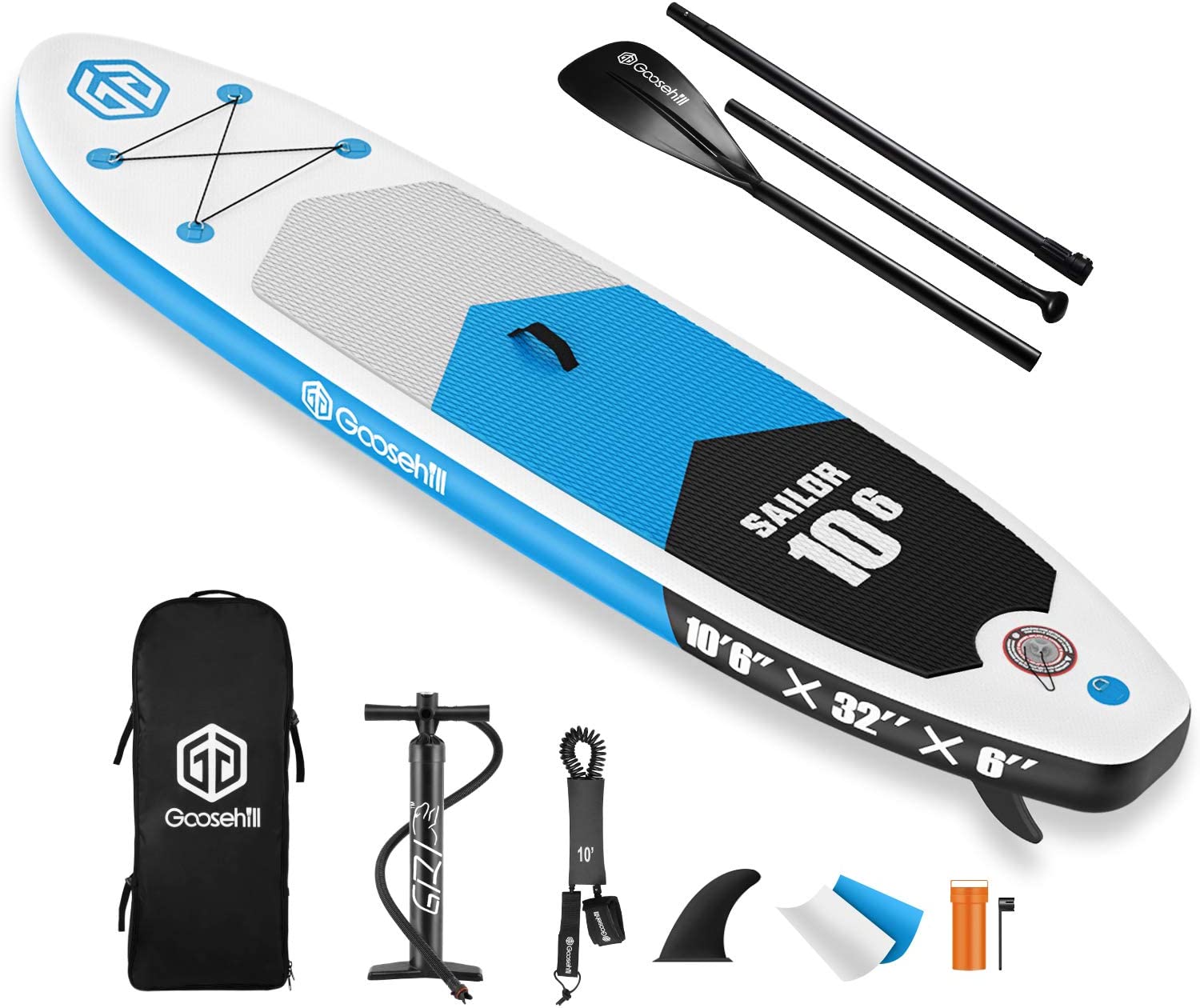Choosing the right paddleboard (SUP, or Stand-Up Paddleboard) is essential as choosing an unsuitable one will make paddle boarding far more difficult and less enjoyable. There are several factors to consider when selecting a paddleboard that suits your needs and preferences:
Paddleboard Types
All-Around: These are versatile boards suitable for various water conditions and activities. They are great for beginners.
Touring: Designed for long-distance paddling and stability, they are ideal for exploring flatwater environments.
Surf: These boards are shorter and narrower, optimized for riding waves.
Inflatable vs. Hard: Inflatables are easier to transport and store, while hard boards offer better performance. Remember inflatable paddleboards can be hard work to blow up although electric pumps are now available.
Board Size
Your weight and skill level will influence the size of the board you need. Generally, a longer, wider board is more stable, while a shorter, narrower one offers more speed and maneuverability.
Volume and Weight Capacity
Check the board’s volume, which determines its buoyancy. Ensure it can support your weight and any gear you plan to bring.
Board Shape
The board’s shape affects its performance. A wider nose provides stability, while a pointed nose is better for speed and tracking.
Materials
Paddleboards can be made of various materials, including epoxy, fiberglass, plastic, or inflatable materials. Each has its pros and cons. Inflatable boards are easier to transport and store.
Fins
The number and configuration of fins affect stability and tracking. Most boards have a single center fin, while others have side fins (thrusters) or even four fins (quad). Some allow for interchangeable fins to customize performance.
Accessories
Consider what comes with the board. Most paddleboards come with a paddle, but you may want to invest in a higher-quality paddle separately. Accessories like a leash, carry bag, and deck pad can also be important.
Brand and Reviews
Research the reputation of the brand and read reviews from other paddleboarders. This can help you gauge the quality and performance of the board.
Budget
Determine your budget and stick to it. Paddleboard prices can vary widely, so make sure you’re getting good value for your money. Cheap doesnt necessarily mean bad. Some very cheap paddleboards such as the Mistral boards sold by the supermarket chain Lidl tend to get very good reviews.
Transport and Storage
The vast majority of paddleboards now sold are inflatable so storage and transport aren’t important factors but if you are intending to get a rigid board give some thought to where you will store this and how you will transport it.
Remember that the right paddleboard for you may not be the same as someone else’s. Take your time to research and consider your specific needs and preferences.
-
 Buy productQuick View
Buy productQuick ViewThe Shark OutdoorMaster 20PSI High Pressure SUP Air Pump
£99.29Buy productQuick View -
 Buy productQuick View
Buy productQuick ViewGoosehill Inflatable Stand Up Paddle Board, Premium SUP Package, 10′ Long 32″ Wide 6″
£195.00Buy productQuick View -
 Buy productQuick View
Buy productQuick ViewAqua Spirit Barracuda SUP Inflatable Stand Up Paddle Board 2023 -10’6×32”x6”
£229.49Buy productQuick View -
 Buy productQuick View
Buy productQuick ViewAquaplanet Inflatable Stand Up Paddle Board Kit – Max, Rainbow 10.6
£349.00Buy productQuick View -
 Buy productQuick View
Buy productQuick ViewBluefin Cruise Carbon SUP Inflatable Stand Up Paddle Board
£629.99Buy productQuick View
